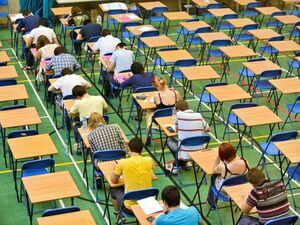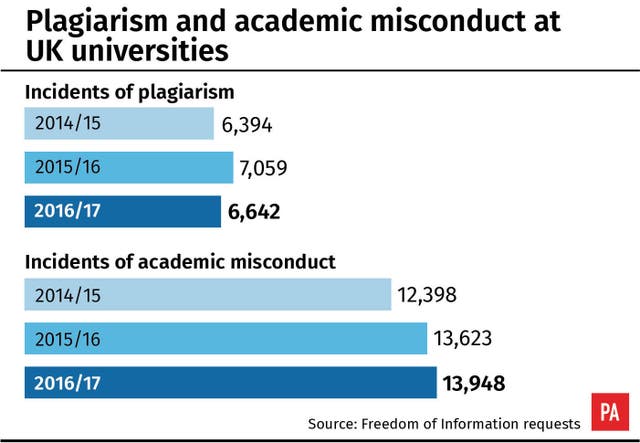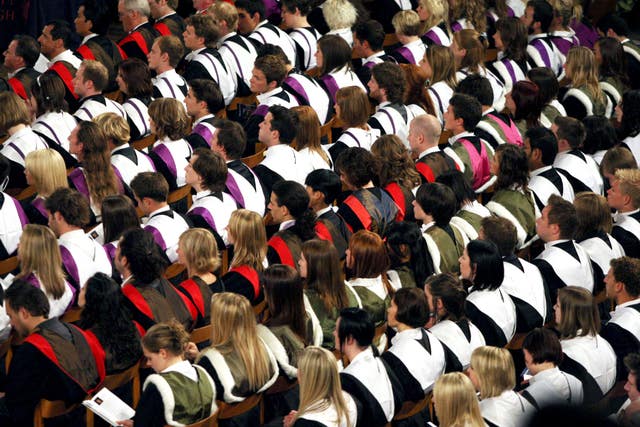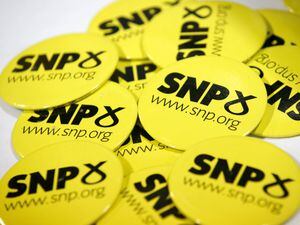Thousands of students investigated for a range of misconduct, new figures show
Data obtained by the Press Association unveiled allegations of violence, plagiarism and flouting fire regulations on campuses across the country.

University students have been investigated tens of thousands of times for misconduct during a three-year period, from serious assault, threats of violence and sexual offending to more trivial offences – including eating the vice-chancellor’s sandwich.
Data obtained by the Press Association showed nearly 75,000 incidents were logged by universities across the UK for the academic years 2014-15, 2015-16, and 2016-17, with some institutions reporting significant numbers of drugs-related offences and misbehaviour in student halls.

There was an across-the-board increase in academic misconduct, such as cheating in exams and collusion with other students.
Around 1,300 university staff were also investigated during the same time frame for allegations including poor time-keeping, conducting inappropriate relationships, and bullying, according to institutions with relevant data.
The student figures – which are based on responses to Freedom of Information requests to 159 universities across England, Scotland, Wales and Northern Ireland – only hint at the extent of misconduct on campus.
Inconsistencies in the way some institutions report allegations – plus the handful of those who refused to supply information – means the true numbers are likely to be much higher.
While some universities said only a tiny number of students were involved in behavioural or academic misconduct, others reported more than 3,000 cases across the last three full years for which data is available, between 2014 and 2017.
There were several serious cases of student misconduct, including one who received a “severe reprimand” for “threatening to blow up the graduation ceremonies”.
Other incidents included allegations of sexual offences, making extremist comments, and possessing weapons on campus.
In one case, a Brunel undergraduate dressed up as a clown carrying a chainsaw, while a Twickenham St Mary’s student was ordered to buy a replacement sandwich after eating the vice-chancellor’s.

Nick Hillman, director of the Higher Education Policy Institute (HEPI) think tank, said: “These shocking figures show our world-class universities often have to put up with third-rate behaviour.
“Cheating, bullying and vandalism should have no place on university campuses – they are incredibly unfair to the majority of students and staff who are trying to do their best.
“It is imperative that universities continue to monitor behaviour that adversely affects other students and, where necessary, to provide induction and training courses to stamp it out. I hope that, in time, universities will collect this data in more comparable and transparent ways.
“When it comes to getting a degree, there should be no such thing as a figurative or real free lunch, even if comes at the vice-chancellor’s expense.”
Disclosure logs highlight some more familiar examples of undergraduate trouble-making – including vandalism, setting off smoke alarms, and urinating in public.
A clutch of universities also reported large groups of students getting into trouble for unacceptable behaviour on sports trips or foreign visits.
The data showed plagiarism was a common issue – with 6,394 incidents in 2014/15, rising to 7,059 the following year. This number dropped to 6,642 by 2016/17.

Academic misconduct increased annually – up from 12,398, to 13,623, to 13,948.
Examples of cheating in exams included students reprimanded for scrawling notes on their own body, jotting down answers before the permitted time, and others who refused to stop writing when required.
Others said examples of misconduct included commissioning an essay to be written by a third party, a phone which rang during an exam, and a student who was discovered texting their friend in the toilets during a test.
University and College Union general secretary Sally Hunt said: “No-one can condone plagiarism.
“Plagiarism defeats the whole object of going to university and students need to understand the consequences if they explore unscrupulous ways of completing their work.
“However, the changing culture of higher education does not help matters. Governments using graduate premiums as a selling point for degrees have changed the nature of life on campus.”
A spokesman for Universities UK, which represents institutions across the country, said: “All universities have a code of student conduct which sets out expectations for student behaviour.
“With more than two million students enrolled at universities across the UK, there will inevitably be occasions when a line is crossed and rules are breached. This is not new.
“The important thing is ensuring that students are familiar with the institution’s code of conduct and that there are clear procedures to resolve matters when behaviour is unacceptable, and for serious issues to be escalated to the appropriate authority.
“In relation to plagiarism and cheating, universities have severe penalties for students found to be submitting work that is not their own.
“Such academic misconduct is a breach of an institution’s disciplinary regulations and can result in students, in serious cases, being expelled from the university. Universities have become increasingly experienced at dealing with such issues and are engaging with students from day-one to underline the implications of cheating and how it can be avoided.”





